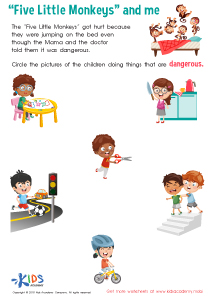Vocabulary expansion Easy Building Vocabulary Worksheets for Ages 4-9
7 filtered results
-
From - To
Unlock the power of language with our "Easy Building Vocabulary Worksheets" designed for children aged 4-9! These engaging worksheets provide a fun and interactive way to expand vocabulary, enhance reading skills, and build communication confidence. Each worksheet offers age-appropriate exercises that focus on essential words, synonyms, antonyms, and context clues, making learning both effective and enjoyable. Perfect for home or classroom use, our resources encourage creativity and critical thinking while supporting early literacy development. Start your child's journey towards vocabulary mastery today with our delightful worksheets that turn learning into an exciting adventure!
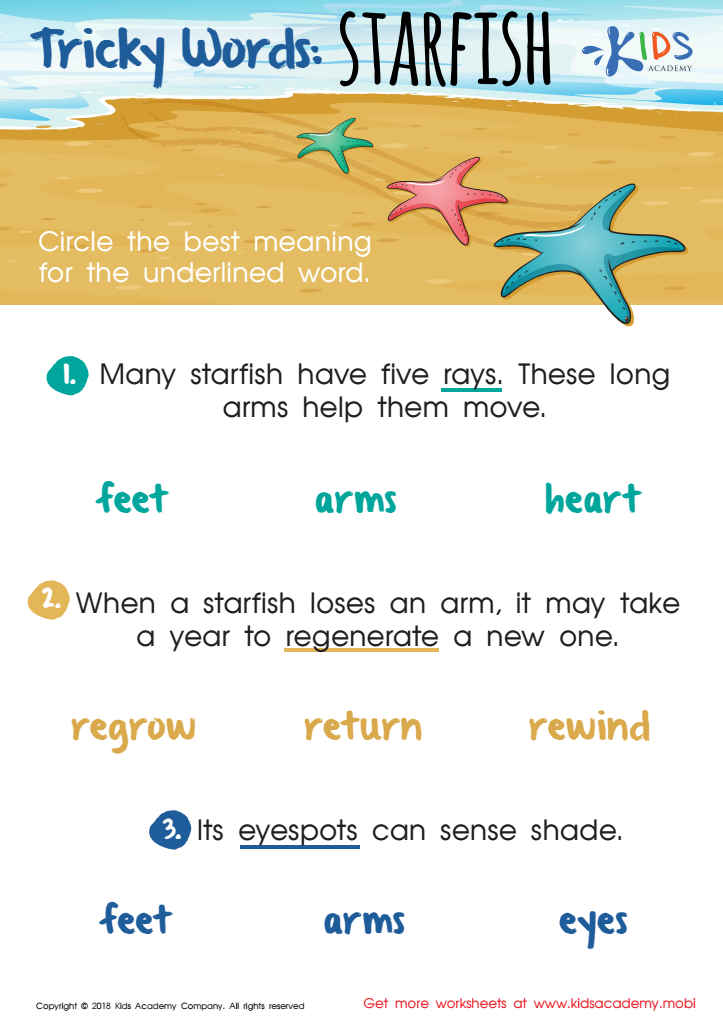

Tricky Words: Starfish Worksheet


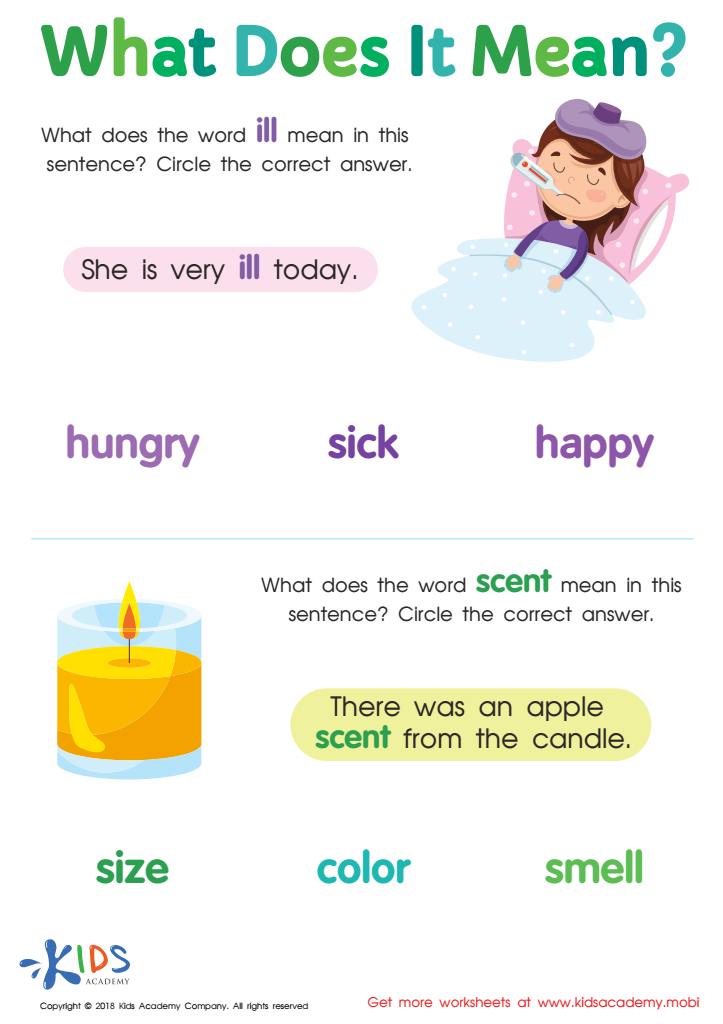

What Does It Mean? Worksheet
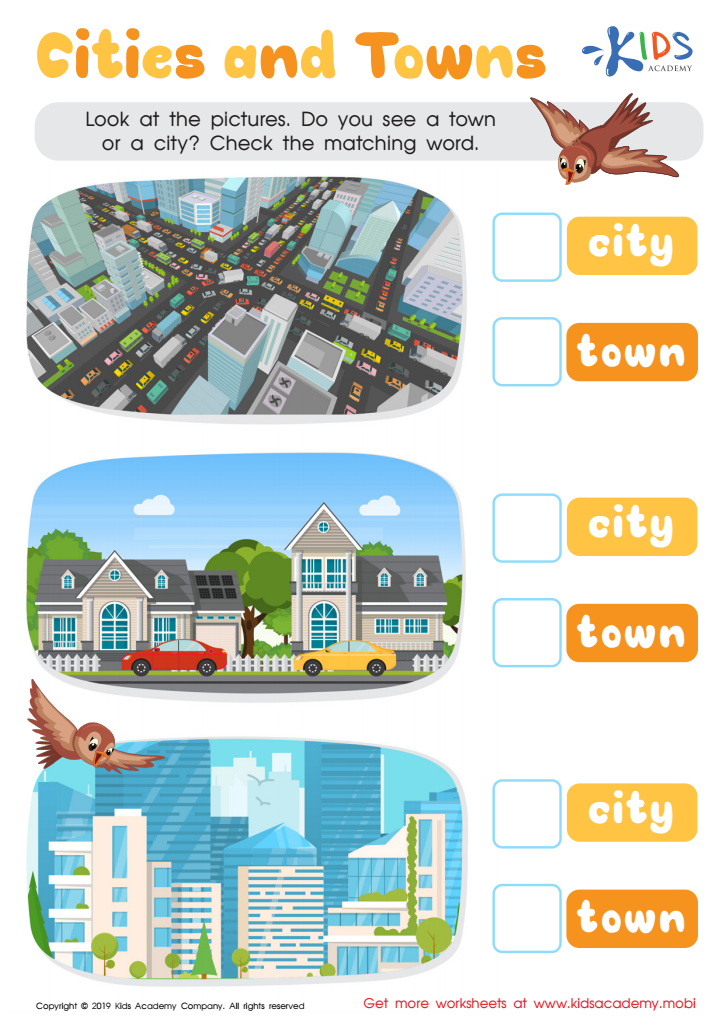

Cities and Towns Worksheet
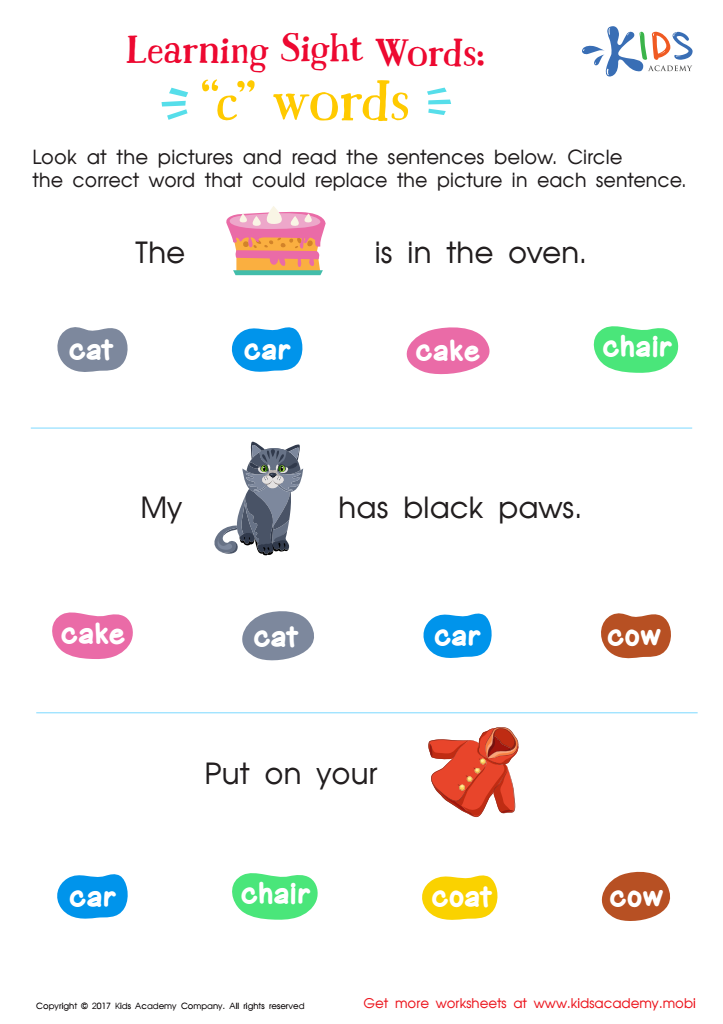

"C" Words Printable Sight Words Worksheet
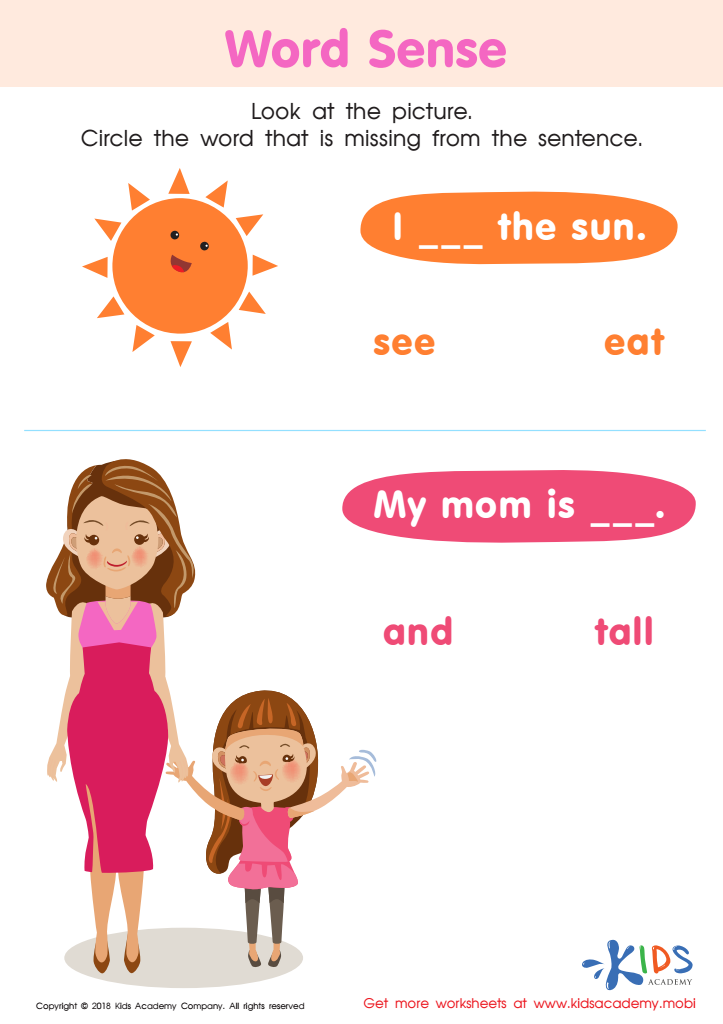

Word Sense Worksheet
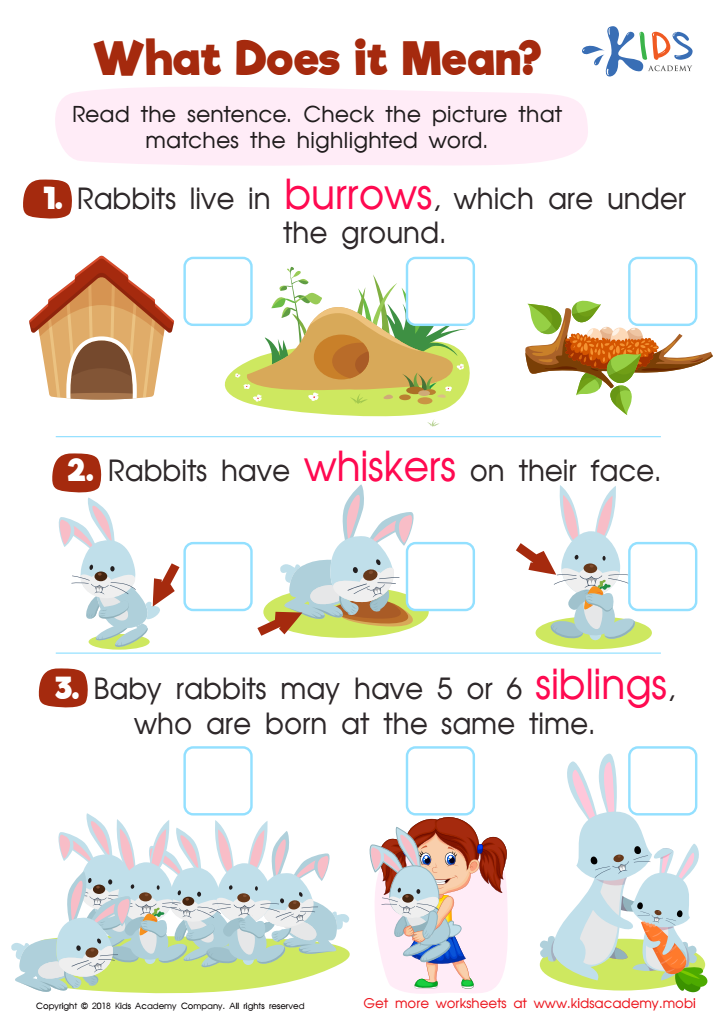

What Does It Mean? Worksheet
Vocabulary expansion is vital for children aged 4 to 9 as it significantly impacts their overall language development and cognitive growth. A robust vocabulary enhances communication skills, enabling children to express their thoughts and feelings more clearly. When young learners encounter new words, they gain confidence in speaking and writing, which fosters their engagement in both academic and social settings.
Parents and teachers should prioritize vocabulary-building activities such as reading together, playing word games, and utilizing interactive apps designed for this age group. This not only aids in learning but also makes the process enjoyable, encouraging a love for language. Moreover, a rich vocabulary enhances comprehension skills, allowing children to grasp complex ideas as they advance in their education.
Furthermore, understanding a broad range of words boosts critical thinking and problem-solving abilities. It forms the basis for literacy skills that are essential for success in school and later life. By focusing on vocabulary expansion, parents and teachers provide children with the tools they need to communicate effectively, participate actively in discussions, and develop a lifelong love for learning. Investing time in vocabulary development yields impressive benefits, ultimately shaping well-rounded and articulate individuals.
 Assign to My Students
Assign to My Students














